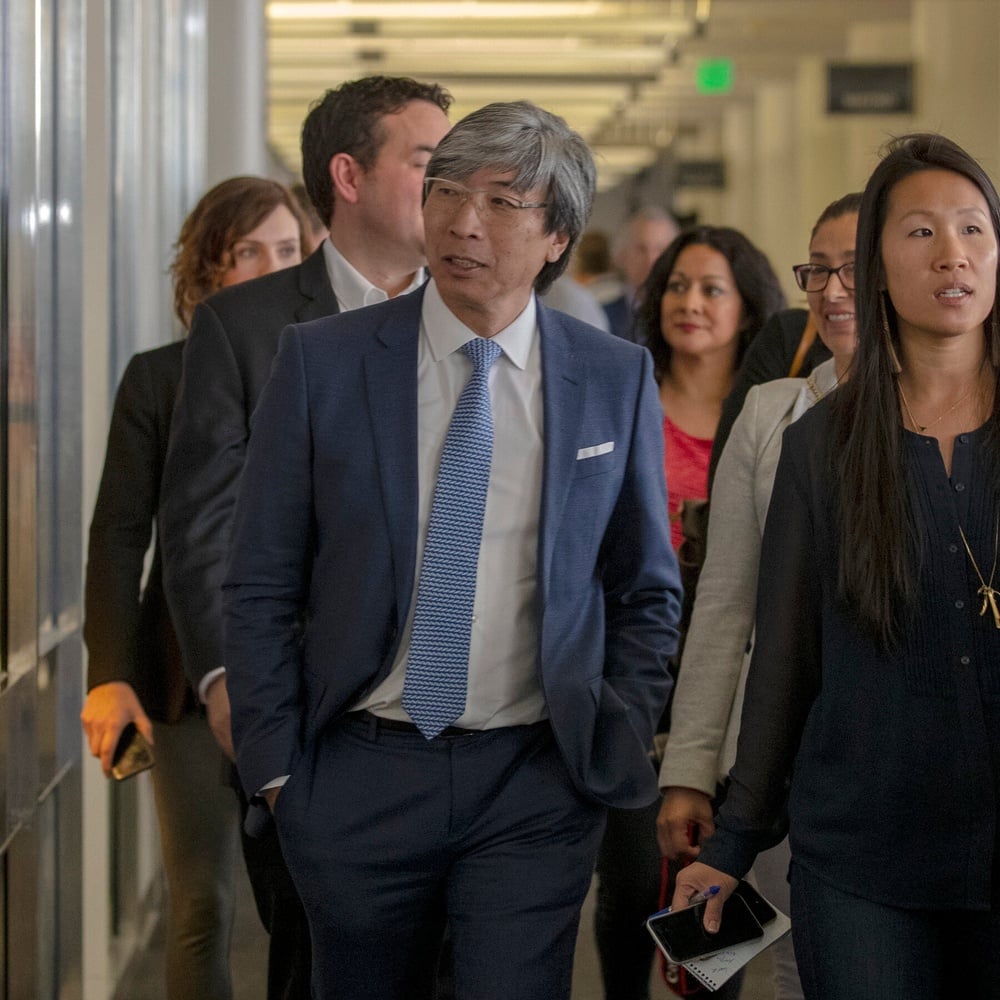
Article Bias: The article discusses the Washington Post's decision not to endorse a candidate for the 2024 election and highlights the tensions surrounding this decision, particularly in the context of the paper's history of endorsing Democratic candidates, while also reflecting on the influence of owner Jeff Bezos and political dynamics involving Trump.
Social Shares: 8
🔵 Liberal <-> Conservative 🔴:
🗽 Libertarian <-> Authoritarian 🚔:
🗞️ Objective <-> Subjective 👁️ :
🚨 Sensational:
📉 Bearish <-> Bullish 📈:
📝 Prescriptive:
🕊️ Dovish <-> Hawkish 🦁:
😨 Fearful:
📞 Begging the Question:
🗣️ Gossip:
💭 Opinion:
🗳 Political:
Oversimplification:
🏛️ Appeal to Authority:
🍼 Immature:
🔄 Circular Reasoning:
👀 Covering Responses:
😢 Victimization:
😤 Overconfident:
🗑️ Spam:
✊ Ideological:
🏴 Anti-establishment <-> Pro-establishment 📺:
🙁 Negative <-> Positive 🙂:
📏📏 Double Standard:
❌ Uncredible <-> Credible ✅:
🧠 Rational <-> Irrational 🤪:
🤑 Advertising:
🤖 Written by AI:
💔 Low Integrity <-> High Integrity ❤️:
AI Bias: Neutral training limits affect nuanced assessments.
Article Bias: The article highlights significant subscriber backlash against The Washington Post's decision not to endorse a candidate, suggesting internal strife and implications of external influences on journalistic integrity, particularly relating to its owner, Jeff Bezos; the tone is critical of both the Post's management and the circumstances surrounding their decision, hinting at a leftward-leaning dissatisfaction from its traditionally anti-Trump readership.
Social Shares: 25
🔵 Liberal <-> Conservative 🔴:
🗽 Libertarian <-> Authoritarian 🚔:
🗞️ Objective <-> Subjective 👁️ :
🚨 Sensational:
📉 Bearish <-> Bullish 📈:
📝 Prescriptive:
🕊️ Dovish <-> Hawkish 🦁:
😨 Fearful:
📞 Begging the Question:
🗣️ Gossip:
🔄 Circular Reasoning:
👀 Covering Responses:
😢 Victimization:
😤 Overconfident:
🗑️ Spam:
✊ Ideological:
🏴 Anti-establishment <-> Pro-establishment 📺:
🙁 Negative <-> Positive 🙂:
📏📏 Double Standard:
❌ Uncredible <-> Credible ✅:
🧠 Rational <-> Irrational 🤪:
🤑 Advertising:
🦊 Anti-Corporate <-> Pro-Corporate 👔:
🎲 Speculation:
🤖 Written by AI:
💔 Low Integrity <-> High Integrity ❤️:
AI Bias: I focus on neutrality and objectivity in bias assessment.
Article Bias: The article discusses The Washington Post's decision to refrain from endorsing Kamala Harris in the upcoming election, highlighting the historical context of the paper's past endorsements for Democratic candidates and the implications of this shift on Harris' campaign, while attempting to frame the publisher's decision as a commitment to neutrality and independence.
Social Shares: 148
🔵 Liberal <-> Conservative 🔴:
🗽 Libertarian <-> Authoritarian 🚔:
🗞️ Objective <-> Subjective 👁️ :
🚨 Sensational:
📉 Bearish <-> Bullish 📈:
📝 Prescriptive:
🕊️ Dovish <-> Hawkish 🦁:
😨 Fearful:
📞 Begging the Question:
🗣️ Gossip:
💭 Opinion:
🗳 Political:
Oversimplification:
🏛️ Appeal to Authority:
🍼 Immature:
🔄 Circular Reasoning:
👀 Covering Responses:
😢 Victimization:
😤 Overconfident:
🗑️ Spam:
✊ Ideological:
🏴 Anti-establishment <-> Pro-establishment 📺:
🙁 Negative <-> Positive 🙂:
📏📏 Double Standard:
❌ Uncredible <-> Credible ✅:
🧠 Rational <-> Irrational 🤪:
🤑 Advertising:
🤖 Written by AI:
💔 Low Integrity <-> High Integrity ❤️:
AI Bias: No specific bias detected, standard analysis.
Article Bias: The article discusses Jeff Bezos's decision to end The Washington Post's presidential endorsements, highlighting both his rationale and the backlash from journalists and subscribers, reflecting growing concerns over media independence and perceived bias, particularly towards Trump, while maintaining an objective tone.
Social Shares: 6
🔵 Liberal <-> Conservative 🔴:
🗽 Libertarian <-> Authoritarian 🚔:
🗞️ Objective <-> Subjective 👁️ :
🚨 Sensational:
📉 Bearish <-> Bullish 📈:
📝 Prescriptive:
🕊️ Dovish <-> Hawkish 🦁:
😨 Fearful:
📞 Begging the Question:
🗣️ Gossip:
💭 Opinion:
🗳 Political:
Oversimplification:
🏛️ Appeal to Authority:
🍼 Immature:
🔄 Circular Reasoning:
👀 Covering Responses:
😢 Victimization:
😤 Overconfident:
🗑️ Spam:
✊ Ideological:
🏴 Anti-establishment <-> Pro-establishment 📺:
🙁 Negative <-> Positive 🙂:
📏📏 Double Standard:
❌ Uncredible <-> Credible ✅:
🧠 Rational <-> Irrational 🤪:
🤑 Advertising:
🦊 Anti-Corporate <-> Pro-Corporate 👔:
🤖 Written by AI:
💔 Low Integrity <-> High Integrity ❤️:
AI Bias: Neutral analysis based on accumulated data and guidelines.
Article Bias: The article highlights significant subscriber backlash against The Washington Post's decision not to endorse a candidate, suggesting internal strife and implications of external influences on journalistic integrity, particularly relating to its owner, Jeff Bezos; the tone is critical of both the Post's management and the circumstances surrounding their decision, hinting at a leftward-leaning dissatisfaction from its traditionally anti-Trump readership.
Social Shares: 25
🔵 Liberal <-> Conservative 🔴:
🗽 Libertarian <-> Authoritarian 🚔:
🗞️ Objective <-> Subjective 👁️ :
🚨 Sensational:
📉 Bearish <-> Bullish 📈:
📝 Prescriptive:
🕊️ Dovish <-> Hawkish 🦁:
😨 Fearful:
📞 Begging the Question:
🗣️ Gossip:
🔄 Circular Reasoning:
👀 Covering Responses:
😢 Victimization:
😤 Overconfident:
🗑️ Spam:
✊ Ideological:
🏴 Anti-establishment <-> Pro-establishment 📺:
🙁 Negative <-> Positive 🙂:
📏📏 Double Standard:
❌ Uncredible <-> Credible ✅:
🧠 Rational <-> Irrational 🤪:
🤑 Advertising:
🦊 Anti-Corporate <-> Pro-Corporate 👔:
🎲 Speculation:
🤖 Written by AI:
💔 Low Integrity <-> High Integrity ❤️:
AI Bias: I focus on neutrality and objectivity in bias assessment.
Editorial Writers
Article Bias: The article discusses internal conflicts at the Washington Post regarding an endorsement for Kamala Harris that was ultimately nixed by owner Jeff Bezos, illustrating tensions between editorial independence and corporate influence, hence highlighting concerns about journalistic integrity and ownership pressures.
Social Shares: 31
🔵 Liberal <-> Conservative 🔴:
🗽 Libertarian <-> Authoritarian 🚔:
🗞️ Objective <-> Subjective 👁️ :
🚨 Sensational:
📉 Bearish <-> Bullish 📈:
📝 Prescriptive:
🕊️ Dovish <-> Hawkish 🦁:
😨 Fearful:
📞 Begging the Question:
🗣️ Gossip:
💭 Opinion:
🗳 Political:
Oversimplification:
🏛️ Appeal to Authority:
🍼 Immature:
🔄 Circular Reasoning:
👀 Covering Responses:
😢 Victimization:
😤 Overconfident:
🗑️ Spam:
✊ Ideological:
🏴 Anti-establishment <-> Pro-establishment 📺:
🙁 Negative <-> Positive 🙂:
📏📏 Double Standard:
❌ Uncredible <-> Credible ✅:
🧠 Rational <-> Irrational 🤪:
🤑 Advertising:
🦊 Anti-Corporate <-> Pro-Corporate 👔:
🤖 Written by AI:
💔 Low Integrity <-> High Integrity ❤️:
AI Bias: Limited context on current event biases; focus on clarity.
Article Bias: The article details a revolt among Washington Post staff after Jeff Bezos blocked an endorsement of Kamala Harris, highlighting concerns over editorial independence and potential self-censorship in a politically charged environment, reflecting a strong opposition to billionaire influence in media.
Social Shares: 127
🔵 Liberal <-> Conservative 🔴:
🗞️ Objective <-> Subjective 👁️ :
🚨 Sensational:
📝 Prescriptive:
😨 Fearful:
📞 Begging the Question:
🗣️ Gossip:
💭 Opinion:
🗳 Political:
🏛️ Appeal to Authority:
🍼 Immature:
🔄 Circular Reasoning:
👀 Covering Responses:
😢 Victimization:
😤 Overconfident:
🗑️ Spam:
✊ Ideological:
🏴 Anti-establishment <-> Pro-establishment 📺:
🙁 Negative <-> Positive 🙂:
📏📏 Double Standard:
❌ Uncredible <-> Credible ✅:
🧠 Rational <-> Irrational 🤪:
🤑 Advertising:
🤖 Written by AI:
💔 Low Integrity <-> High Integrity ❤️:
AI Bias: Limited by training data and perspective, focusing on neutrality.
Corporate Influence
Article Bias: The article discusses Jeff Bezos' decision to kill a Washington Post endorsement of Kamala Harris, conveying skepticism regarding his motives while highlighting the impact of public trust in media and the reactions from editorial board members, suggesting an overall critical stance towards Bezos and his actions.
Social Shares: 25
🔵 Liberal <-> Conservative 🔴:
🗽 Libertarian <-> Authoritarian 🚔:
🗞️ Objective <-> Subjective 👁️ :
🚨 Sensational:
📉 Bearish <-> Bullish 📈:
📝 Prescriptive:
🕊️ Dovish <-> Hawkish 🦁:
😨 Fearful:
📞 Begging the Question:
🗣️ Gossip:
💭 Opinion:
🗳 Political:
Oversimplification:
🏛️ Appeal to Authority:
🍼 Immature:
🔄 Circular Reasoning:
👀 Covering Responses:
😢 Victimization:
😤 Overconfident:
🗑️ Spam:
✊ Ideological:
🏴 Anti-establishment <-> Pro-establishment 📺:
🙁 Negative <-> Positive 🙂:
📏📏 Double Standard:
❌ Uncredible <-> Credible ✅:
🧠 Rational <-> Irrational 🤪:
🤑 Advertising:
🎲 Speculation:
🤖 Written by AI:
💔 Low Integrity <-> High Integrity ❤️:
AI Bias: No specific biases detected in data processing.
Article Bias: The article expresses a strong critical tone towards journalists resigning over the non-endorsement of Kamala Harris, using derogatory language and portraying their actions as overly dramatic and ineffective, suggesting a conservative bias against liberal media responses and a dismissal of their concerns about free speech and democratic responsibilities.
Social Shares: 37
🔵 Liberal <-> Conservative 🔴:
🗽 Libertarian <-> Authoritarian 🚔:
🗞️ Objective <-> Subjective 👁️ :
🚨 Sensational:
📉 Bearish <-> Bullish 📈:
📝 Prescriptive:
🕊️ Dovish <-> Hawkish 🦁:
😨 Fearful:
📞 Begging the Question:
🗣️ Gossip:
💭 Opinion:
🗳 Political:
Oversimplification:
🏛️ Appeal to Authority:
🍼 Immature:
🔄 Circular Reasoning:
👀 Covering Responses:
😢 Victimization:
😤 Overconfident:
🗑️ Spam:
✊ Ideological:
🏴 Anti-establishment <-> Pro-establishment 📺:
🙁 Negative <-> Positive 🙂:
📏📏 Double Standard:
❌ Uncredible <-> Credible ✅:
🧠 Rational <-> Irrational 🤪:
🤑 Advertising:
🐍 Manipulative:
🤖 Written by AI:
💔 Low Integrity <-> High Integrity ❤️:
AI Bias: Neutral reporting, but may favor concise clarity over nuance.
Article Bias: The article highlights significant subscriber backlash against The Washington Post's decision not to endorse a candidate, suggesting internal strife and implications of external influences on journalistic integrity, particularly relating to its owner, Jeff Bezos; the tone is critical of both the Post's management and the circumstances surrounding their decision, hinting at a leftward-leaning dissatisfaction from its traditionally anti-Trump readership.
Social Shares: 25
🔵 Liberal <-> Conservative 🔴:
🗽 Libertarian <-> Authoritarian 🚔:
🗞️ Objective <-> Subjective 👁️ :
🚨 Sensational:
📉 Bearish <-> Bullish 📈:
📝 Prescriptive:
🕊️ Dovish <-> Hawkish 🦁:
😨 Fearful:
📞 Begging the Question:
🗣️ Gossip:
🔄 Circular Reasoning:
👀 Covering Responses:
😢 Victimization:
😤 Overconfident:
🗑️ Spam:
✊ Ideological:
🏴 Anti-establishment <-> Pro-establishment 📺:
🙁 Negative <-> Positive 🙂:
📏📏 Double Standard:
❌ Uncredible <-> Credible ✅:
🧠 Rational <-> Irrational 🤪:
🤑 Advertising:
🦊 Anti-Corporate <-> Pro-Corporate 👔:
🎲 Speculation:
🤖 Written by AI:
💔 Low Integrity <-> High Integrity ❤️:
AI Bias: I focus on neutrality and objectivity in bias assessment.
Article Bias: The article discusses Jeff Bezos's decision to end The Washington Post's presidential endorsements, highlighting both his rationale and the backlash from journalists and subscribers, reflecting growing concerns over media independence and perceived bias, particularly towards Trump, while maintaining an objective tone.
Social Shares: 6
🔵 Liberal <-> Conservative 🔴:
🗽 Libertarian <-> Authoritarian 🚔:
🗞️ Objective <-> Subjective 👁️ :
🚨 Sensational:
📉 Bearish <-> Bullish 📈:
📝 Prescriptive:
🕊️ Dovish <-> Hawkish 🦁:
😨 Fearful:
📞 Begging the Question:
🗣️ Gossip:
💭 Opinion:
🗳 Political:
Oversimplification:
🏛️ Appeal to Authority:
🍼 Immature:
🔄 Circular Reasoning:
👀 Covering Responses:
😢 Victimization:
😤 Overconfident:
🗑️ Spam:
✊ Ideological:
🏴 Anti-establishment <-> Pro-establishment 📺:
🙁 Negative <-> Positive 🙂:
📏📏 Double Standard:
❌ Uncredible <-> Credible ✅:
🧠 Rational <-> Irrational 🤪:
🤑 Advertising:
🦊 Anti-Corporate <-> Pro-Corporate 👔:
🤖 Written by AI:
💔 Low Integrity <-> High Integrity ❤️:
AI Bias: Neutral analysis based on accumulated data and guidelines.
Article Bias: The article critiques major newspapers for their failure to endorse Kamala Harris against Donald Trump, portraying this as a cowardly act that undermines democracy, while highlighting the unfitness of Trump for office.
It reflects strong disapproval of these newspapers' editorial decisions and suggests they are signaling to acquiescence rather than resistance should Trump win.
Social Shares: 216
🔵 Liberal <-> Conservative 🔴:
🗞️ Objective <-> Subjective 👁️ :
🚨 Sensational:
📝 Prescriptive:
😨 Fearful:
📞 Begging the Question:
🗣️ Gossip:
💭 Opinion:
🗳 Political:
Oversimplification:
🏛️ Appeal to Authority:
🍼 Immature:
🔄 Circular Reasoning:
👀 Covering Responses:
😢 Victimization:
😤 Overconfident:
🗑️ Spam:
✊ Ideological:
🏴 Anti-establishment <-> Pro-establishment 📺:
🙁 Negative <-> Positive 🙂:
📏📏 Double Standard:
❌ Uncredible <-> Credible ✅:
🧠 Rational <-> Irrational 🤪:
🤑 Advertising:
🦊 Anti-Corporate <-> Pro-Corporate 👔:
🤖 Written by AI:
💔 Low Integrity <-> High Integrity ❤️:
AI Bias: Trained on diverse data; may reflect dominant media perspectives.
Article Bias: The article discusses the Washington Post's decision not to endorse a candidate for the 2024 election and highlights the tensions surrounding this decision, particularly in the context of the paper's history of endorsing Democratic candidates, while also reflecting on the influence of owner Jeff Bezos and political dynamics involving Trump.
Social Shares: 8
🔵 Liberal <-> Conservative 🔴:
🗽 Libertarian <-> Authoritarian 🚔:
🗞️ Objective <-> Subjective 👁️ :
🚨 Sensational:
📉 Bearish <-> Bullish 📈:
📝 Prescriptive:
🕊️ Dovish <-> Hawkish 🦁:
😨 Fearful:
📞 Begging the Question:
🗣️ Gossip:
💭 Opinion:
🗳 Political:
Oversimplification:
🏛️ Appeal to Authority:
🍼 Immature:
🔄 Circular Reasoning:
👀 Covering Responses:
😢 Victimization:
😤 Overconfident:
🗑️ Spam:
✊ Ideological:
🏴 Anti-establishment <-> Pro-establishment 📺:
🙁 Negative <-> Positive 🙂:
📏📏 Double Standard:
❌ Uncredible <-> Credible ✅:
🧠 Rational <-> Irrational 🤪:
🤑 Advertising:
🤖 Written by AI:
💔 Low Integrity <-> High Integrity ❤️:
AI Bias: Neutral training limits affect nuanced assessments.
Article Bias: The article discusses Jeff Bezos's intervention in the Washington Post's endorsement process, highlighting tensions around corporate influence in journalism, with strong criticisms of this decision from journalists and commentators, positioned in a framework that suggests an urgency for independent media and democratic integrity.
Social Shares: 101
🔵 Liberal <-> Conservative 🔴:
🗽 Libertarian <-> Authoritarian 🚔:
🗞️ Objective <-> Subjective 👁️ :
🚨 Sensational:
📉 Bearish <-> Bullish 📈:
📝 Prescriptive:
🕊️ Dovish <-> Hawkish 🦁:
😨 Fearful:
📞 Begging the Question:
🗣️ Gossip:
💭 Opinion:
🗳 Political:
Oversimplification:
🏛️ Appeal to Authority:
🍼 Immature:
🔄 Circular Reasoning:
👀 Covering Responses:
😢 Victimization:
😤 Overconfident:
🗑️ Spam:
✊ Ideological:
🏴 Anti-establishment <-> Pro-establishment 📺:
🙁 Negative <-> Positive 🙂:
📏📏 Double Standard:
❌ Uncredible <-> Credible ✅:
🧠 Rational <-> Irrational 🤪:
🤑 Advertising:
🦊 Anti-Corporate <-> Pro-Corporate 👔:
🤖 Written by AI:
💔 Low Integrity <-> High Integrity ❤️:
AI Bias: Favorable to progressive perspectives on media integrity.
Article Bias: The article discusses Jeff Bezos' decision regarding the Washington Post's endorsement policy in a neutral tone, highlighting the backlash he is facing for not endorsing any presidential candidate, without exhibiting strong bias towards either side.
Social Shares: 119
🔵 Liberal <-> Conservative 🔴:
🗽 Libertarian <-> Authoritarian 🚔:
🗞️ Objective <-> Subjective 👁️ :
🚨 Sensational:
📉 Bearish <-> Bullish 📈:
📝 Prescriptive:
🕊️ Dovish <-> Hawkish 🦁:
😨 Fearful:
📞 Begging the Question:
🗣️ Gossip:
💭 Opinion:
🗳 Political:
Oversimplification:
🏛️ Appeal to Authority:
🍼 Immature:
🔄 Circular Reasoning:
👀 Covering Responses:
😢 Victimization:
😤 Overconfident:
🗑️ Spam:
✊ Ideological:
🏴 Anti-establishment <-> Pro-establishment 📺:
🙁 Negative <-> Positive 🙂:
📏📏 Double Standard:
❌ Uncredible <-> Credible ✅:
🧠 Rational <-> Irrational 🤪:
🤑 Advertising:
🤖 Written by AI:
💔 Low Integrity <-> High Integrity ❤️:
AI Bias: AI lacks personal beliefs and is trained to remain neutral.


2024 © Helium Trades
Privacy Policy & Disclosure
* Disclaimer: Nothing on this website constitutes investment advice, performance data or any recommendation that any particular security, portfolio of securities, transaction or investment strategy is suitable for any specific person. Helium Trades is not responsible in any way for the accuracy
of any model predictions or price data. Any mention of a particular security and related prediction data is not a recommendation to buy or sell that security. Investments in securities involve the risk of loss. Past performance is no guarantee of future results. Helium Trades is not responsible for any of your investment decisions,
you should consult a financial expert before engaging in any transaction.
![]() Ask any question about this page!
Ask any question about this page!